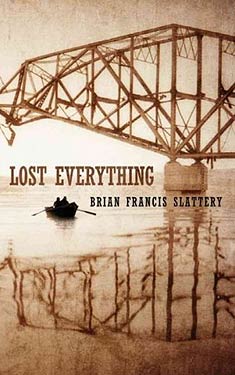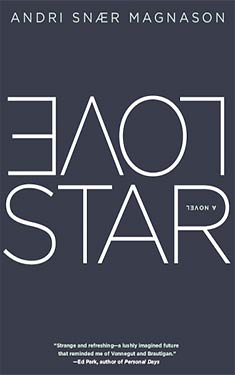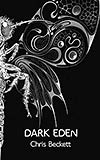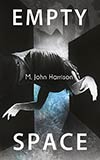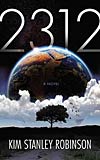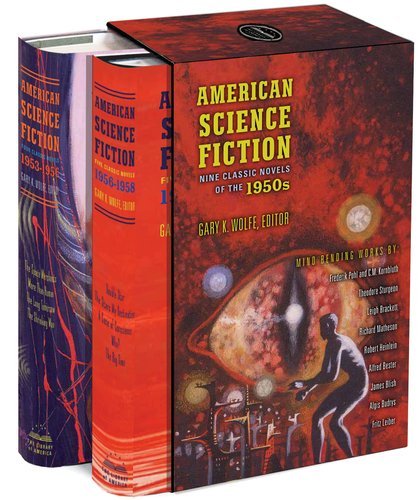The Coming Future of Sci-Fi in Prose and Film

Flux capacitor, check. Cathode tubes, check. Smoking jacket and smokes, che– they passed WHAT laws in the future?!
There were two very interesting articles in recent weeks about the future of science fiction in novels and in movies. The first piece about novels is largely speculative. It’s from The Irish Times, an article titled “The new future of sci-fi” by sci-fi novelist Gareth L. Powell:
Unlike previous movements in genre fiction, this nameless assemblage [of writers] doesn’t appear to be reacting against anything. In fact, their work displays a genuine love for what has gone before, and an appreciation of the roots and peculiarities of genre fiction.
Recently, it’s become fashionable to agonise about the Death of Science Fiction, and hardly a week passes without some commentator declaring its demise. But rather than bemoaning the moribund state of fantastic fiction, or trying to distance themselves from the old guard, these new authors are instead building on the achievements of the past, and warping them into new and unexpected shapes – producing unique, individual works which can only breathe fresh strength and vitality into science fiction and fantasy.
Another piece that caught my attention is Alex Billington’s editorial “A New Era of Sci-Fi is Upon Us – Looking Ahead to Worlds That Await,” which includes an opinion section on the best sci-fi movies of the last five years, and a look ahead at scheduled or in-production films coming soon. An excerpt:
Over the last few years, movies like Cloud Atlas, Chronicle, Moon and District 9 have proven to audiences and other filmmakers that taking a risk with bold, unique ideas can pay off. Maybe not pay off financially, but cinematically at least. The fact that films like Looper and Attack the Block were even made, got released in theaters, built substantial buzz, and nurtured large fan-bases shows that love for intellectual, entertaining sci-fi is still rampant. Audiences are ready to embrace science fiction that is challenging and exciting and not just another remake. Yes, we’ve got more Star Wars, Star Trek, Transformers and even Godzilla on the way, but for each of those we’ve also got original ideas like Gravity, Pacific Rim, Oblivion and Elysium, too.
The future of sci-fi storytelling may not be as weird as some of the stories themselves, but things are surely looking good for the ol’ genre.
2012 British Science Fiction Association Award Winners Announced
 The winners of the 2012 British Science Fiction Association Award were announced last night at Eastercon 64. The winners are:
The winners of the 2012 British Science Fiction Association Award were announced last night at Eastercon 64. The winners are:
- Novel: Jack Glass – Adam Roberts (Gollancz)
- Short Fiction: “Adrift on the Sea of Rains”, Ian Sales (Whippleshield Books)
- Artwork: Blacksheep for the cover of Adam Roberts’ Jack Glass (Gollancz)
- Non-Fiction: The World SF Blog, Chief Editor Lavie Tidhar
Congratulations to the winners and nominees!
Thanks to Locus Online for the report.
WoGF Review: The Snow Queen by Joan D. Vinge
 Guest Blogger, Allie McCarn (Allie), reviews science fiction and fantasy books on her blog Tethyan Books. She has contributed many great book reviews to WWEnd including several Grand Master reviews featured in our blog. Allie has just kicked off a new blog series for WWEnd called New Voices where she’ll be reviewing the debut novels of relatively new authors in the field.
Guest Blogger, Allie McCarn (Allie), reviews science fiction and fantasy books on her blog Tethyan Books. She has contributed many great book reviews to WWEnd including several Grand Master reviews featured in our blog. Allie has just kicked off a new blog series for WWEnd called New Voices where she’ll be reviewing the debut novels of relatively new authors in the field.
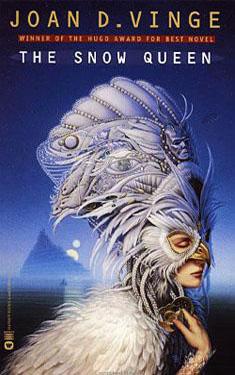 The Snow Queen by Joan D. Vinge
The Snow Queen by Joan D. Vinge
Published : The Dial Press/Quantum, 1980
Series : Book 1 of the Snow Queen Cycle
Awards Won : Hugo, Locus SF Awards
Awards Nominated : Nebula Award
The Book :
“In the world of Tiamat, power changes hands every 150 years, due to the periodic opening and closing of a galactic stargate. During the winter cycle, the Snow Queen reigns, and technophile ‘Winters’ live in a society supported by contact with people from the Hegemony, a government that spans a number of worlds. At the end of this cycle, the Snow Queen and all the world’s technology are sacrificed as the offworlders leave through their closing stargate. Then begins the reign of the Summer Queen, and the primitive, superstitious Summers.
The current Snow Queen, Arienrhod, has no intention of relinquishing her power and watching her technological world collapse. Though she has many schemes to change the cycle, one involves her own clone, a young woman named Moon. Raised as a Summer and in love with her cousin Sparks, Moon has her own ideas about what her life will hold. She intends to be a sibyl, a wise woman of the Summers who can channel answers to nearly any question. However, the fates of Moon, Sparks, and Arienrhod may not be theirs to control…” ~Allie
This is the first novel I’ve read by Joan D. Vinge, which makes it my 3rd novel in the Women of Genre Fiction Reading Challenge. The Snow Queen is from relatively early in her writing career, four years after her 1976 nomination for John W. Campbell Award for Best New Writer for the novelette “Tin Soldier” (published in 1974).
The Snow Queen is the first book of the Snow Queen Cycle, but it stands alone as a novel. I’m not sure whether or not I will continue the series, simply because the story does seem complete.
2012 Philip K. Dick Award Winner
The winner of the 2012 Philip K. Dick Award was announced last night at Norwescon 36 in SeaTac, Washington.
Winner: Lost Everything – Brian Francis Slattery (Tor)
Special Citation: Lovestar – Andri Snær Magnason (Seven Stories)
What do you think of the result? Have you read either of these books or any of the other nominees?
- Blueprints of the Afterlife – Ryan Boudinot (Black Cat)
- Harmony (alt.human) – Keith Brooke (Solaris)
- Helix Wars – Eric Brown (Solaris)
- The Not Yet – Moira Crone (UNO)
- Fountain of Age: Stories – Nancy Kress (Small Beer)
Monsters: Film Review
When you hear of a film called Monsters, your mind probably makes a quick number of associations: Monsters, Inc., Monsters vs. Aliens, Monster’s Ball, etc. When you hear it’s about alien lifeforms and the people who try to survive their invasion, you probably think of Godzilla, Them, Predator, Cloverfield, and others. What you’re probably not imagining is a quiet and contemplative, but never boring, trek through alien-infested territory that is beautiful more often than it is terrifying.
Monsters was written and directed by Gareth Edwards, who was not known for much at the time. It was filmed with a budget of less than $500,000, and Edwards did all of the visual effects himself after filming was complete. Released back in 2010, Monsters made the rounds at various film festivals and eventually as a limited release in theatres. It seems to have descended into rental land without making much of a splash, which is a real pity.
It’s hard to say too many good things about this movie. The setup is fairly simple: a space probe sent to find suspected life elsewhere in the solar system returns to Earth with an alien infection, and crashes over Mexico. The northern half of Mexico is quickly overrun by the giant octopus-like creatures, forcing the U.S. to build a massive wall to protect its southern border. America and Mexico combine their armed forces to send air strikes at the aliens whenever they creep too close to civilized areas.
2012 BSFA Awards Shortlist Announced
The shortlist for the 2012 British Science Fiction Association Award has been announced. The nominees for Best Novel are:
- Dark Eden – Chris Beckett (Corvus)
- Empty Space – M. John Harrison (Gollancz)
- Intrusion – Ken Macleod (Orbit)
- Jack Glass – Adam Roberts (Gollancz)
- 2312 – Kim Stanley Robinson (Orbit)
The 2012 awards will be held at Olympus 2012, The 2013 Eastercon, which takes place from March 29 – April 1, 2013 at the Cedar Court Hotel, Bradford. Visit the BSFA website for the complete list of nominees in all categories. Congratulations to all the nominees.
What do you think of this list? Any favorites to win?
Star Trek: Into Darkness – Official Teaser Trailer
OK, this trailer looks pretty damn good! Khan and another Enterprise destroyed? That’s the Trek we all know and love. Does anyone else feel that the Enterprise has as much hope of making it through a movie in one piece as a character played by Sean Bean? They keep going back to blowing it up for a big emotional moment but I think we’ve all become desensitized to it by now. It’s like seeing the Statue of Liberty destroyed over and over. The impact is lessened each time. To the creators of Star Trek (with apologies to Charlton Heston): “You Maniacs! You blew it up already! Ah, damn you! Damn you all to hell!” Of course maybe it’s not the Enterprise that goes down in the trailer. One can hope.
American Science Fiction: Nine Classic Novels of the 1950s from the Library of America
As the year of the Grand Master Reading Challenge at Worlds Without End winds down, some of you may, like me, be scrambling to complete it. It seems timely, then, that the Library of America has just released the two-volume American Science Fiction: Nine Classic Novels of the 1950s, which contains four Grand Master novels, along with five that probably should be (how can Theodore Sturgeon not be a Grand Master?).
Four Classic Novels 1953-1956
Frederik Pohl and C. M. Kornbluth, The Space Merchants
Theodore Sturgeon, More Than Human
Leigh Brackett, The Long Tomorrow
Richard Matheson, The Shrinking Man
Five Classic Novels 1956-58
Robert A. Heinlein, Double Star
Alfred Bester, The Stars My Destination
James Blish, A Case of Conscience
Algis Budrys, Who?
Fritz Leiber, The Big Time
More information on the books, including introductions to each by current writers such as Neil Gaiman, William Gibson, and Connie Willis, along with a timeline of 1950s SF, a gallery of cover art, contemporary radio and TV adaptations, and essays by editor Gary K. Wolfe, Robert Silverberg, and Barry Malzberg, can be found at a website created by the Library of American to accompany the set. (Consistent with the Library’s policy from its inception, the books themselves contain the novels’ texts, without introduction or commentary.)
GMRC Review: Ring Around the Sun by Clifford D. Simak
 Scott Lazerus came to Worlds Without End looking for a good list of books. He found David Pringle’s Best 100 Science Fiction Novels to his liking and is currently working his way through the list. He has posted a bunch of reviews for WWEnd including several for the GMRC. Be sure to check out Scott’s excellent blog series Forays into Fantasy too!
Scott Lazerus came to Worlds Without End looking for a good list of books. He found David Pringle’s Best 100 Science Fiction Novels to his liking and is currently working his way through the list. He has posted a bunch of reviews for WWEnd including several for the GMRC. Be sure to check out Scott’s excellent blog series Forays into Fantasy too!
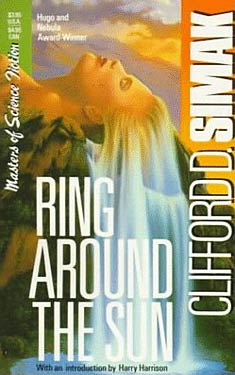 Clifford D. Simak’s stories embody contradictions. Like Ray Bradbury, his writing looks back longingly to an idyllic rural Midwestern childhood. As John Clute and David Pringle put it in The Encyclopedia of Science Fiction, Simak “reigned as the finest pastoral elegist of his genre” from the Golden Age through the 1980s. Unlike Bradbury, though, Simak stuck with science fiction, rather than drifting into realism, and his books have always struck me as a strange combination of futuristic SF ideas and a criticism of the technological, social and economic trends that make the manifestation of those ideas possible. The main theme of Ring Around the Sun (1953), one of his most acclaimed novels, and the one that may come closest to crystallizing the themes that run throughout his career, is that humanity’s biological and social evolution hasn’t kept up with its technological capabilities, resulting in the inevitability that humanity will destroy itself.
Clifford D. Simak’s stories embody contradictions. Like Ray Bradbury, his writing looks back longingly to an idyllic rural Midwestern childhood. As John Clute and David Pringle put it in The Encyclopedia of Science Fiction, Simak “reigned as the finest pastoral elegist of his genre” from the Golden Age through the 1980s. Unlike Bradbury, though, Simak stuck with science fiction, rather than drifting into realism, and his books have always struck me as a strange combination of futuristic SF ideas and a criticism of the technological, social and economic trends that make the manifestation of those ideas possible. The main theme of Ring Around the Sun (1953), one of his most acclaimed novels, and the one that may come closest to crystallizing the themes that run throughout his career, is that humanity’s biological and social evolution hasn’t kept up with its technological capabilities, resulting in the inevitability that humanity will destroy itself.
In 1987, Earth is still threatened by Cold War superpower rivalries, with war seemingly always around the corner, while the ennui of modern life has led people to retreat into a movement called Pretentionism. Clubs have formed in which people get together to share their hobby of historical role-playing, retreating into an imagined past that implies a psychological rejection of the contemporary world. Jay Vickers is an introverted writer who disdains the Pretentionists, but realizes that his own retreat from the world into writing is just another symptom of the same social malaise.
GMRC Review: The Languages of Pao by Jack Vance
 Long time WWEnd member and Uber User, Emil Jung, is an obsessive SF/F reader and as such he’s become a huge supporter of WWEnd. (We often refer to him as our “South African Bureau.”) Besides hanging out here, Emil writes poetry on his blog emiljung.posterous.com. This is the sixth of Emil’s GMRC reviews to feature in our blog.
Long time WWEnd member and Uber User, Emil Jung, is an obsessive SF/F reader and as such he’s become a huge supporter of WWEnd. (We often refer to him as our “South African Bureau.”) Besides hanging out here, Emil writes poetry on his blog emiljung.posterous.com. This is the sixth of Emil’s GMRC reviews to feature in our blog.
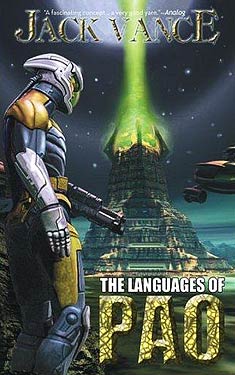 First, a confession. I have not before this book read any of Jack Vance‘s novels. Even so I’m well aware of the fact that he has long been regarded as a very accomplished creator of planetary romances and “dying Earth” fantasies, of which many fine reviews have been submitted for the GMRC. Most reviewers laud his genius for coining memorable and believable nouns for unearthly beings and artefacts, all the more solidying successful attempts to create memorable, spellbinding worlds impregnated with Damon Knight‘s sense of wonder. In The Languages of Pao Vance has created another clever, original adventure story, radiating with verbal and world-building skills. As this is the only Vance I’ve read, I can’t compare its magniloquence and style with other work, but can state that it certainly has enticed me to read more from his corpus.
First, a confession. I have not before this book read any of Jack Vance‘s novels. Even so I’m well aware of the fact that he has long been regarded as a very accomplished creator of planetary romances and “dying Earth” fantasies, of which many fine reviews have been submitted for the GMRC. Most reviewers laud his genius for coining memorable and believable nouns for unearthly beings and artefacts, all the more solidying successful attempts to create memorable, spellbinding worlds impregnated with Damon Knight‘s sense of wonder. In The Languages of Pao Vance has created another clever, original adventure story, radiating with verbal and world-building skills. As this is the only Vance I’ve read, I can’t compare its magniloquence and style with other work, but can state that it certainly has enticed me to read more from his corpus.
The focus of the novel is on linguistics, built around a plot structure powered by the idea of vocabulary as humankind’s means of progress, but despite the seemingly high concept nature of the story, it’s far from an academic read. It starts off with an assassination of Panarch Panasper, apparently by his son Beran. It’s all a clandestine conspiracy by Beran’s uncle Bustamonte, who becomes the Regent while Beran himself is spirited away to Breakness, a world dominated by the Wizards of the Institute, males with cunning intellects that are only matched by their cybernetic augmentations, which bestow them with superpowers. Beran’s benefactor Palofax is the most augmented man on Breakness, and under his tutelage Beran grows to manhood while studying linguistics. From the outset Bustamonte’s reign is beset with difficulties, and Pao is easily conquered by raiders from the planet Batmarsh and forced to pay substantial annual tributes. Bustamonte travels to Breakness to secure help from Palofax, who has his own designs on Pao. They agree that a new breed of Paonese is required, because until then Pao has largely been a rural population that was culturally, linguistically and politically identical. Even in their language the Paonese were conspicuously docile and dispassionate and devoid of a fighting spirit. It’s inexplicable how a planet with 15 billion souls could be so easily overcome by a mere 10,000! Palofax is intent on changing the psychological foundation of Pao, which begins with the Paonese language:



















 Full Details
Full Details
